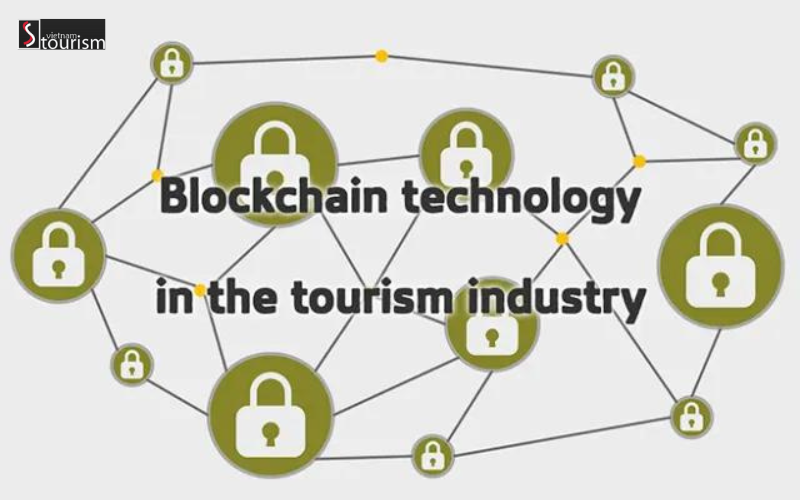
In the ever-evolving landscape of urban development, the concept of smart tourism has emerged as a pivotal force driving the growth of modern cities. This paradigm shift not only enhances the overall travel experience but also contributes significantly to the sustainable development of urban areas. At the heart of this transformation lies blockchain technology, playing a crucial role in managing and optimizing various aspects of smart tourism destinations. In this article, we explore the multifaceted impact of blockchain on smart tourism, focusing on its role in information management, transparency, traffic control, ticket management, and promotional programs.
Smart tourism, an integral component of contemporary urban development, leverages technology to enhance the efficiency and sustainability of travel experiences. The incorporation of advanced technologies like blockchain has become instrumental in addressing challenges and fostering innovation within the smart tourism ecosystem.
In the realm of smart tourism, the effective management of information related to tourist destinations is paramount. Blockchain technology emerges as a game-changer in this aspect, offering a decentralized and secure framework for handling vast datasets associated with travel destinations.
Blockchain operates on a distributed ledger system, where information is stored across a network of computers, ensuring transparency and reducing the risk of data manipulation. This decentralized nature of blockchain enhances the reliability and integrity of tourist-related information, encompassing details such as accommodation options, popular attractions, historical sites, and local events.
One of the primary advantages of using blockchain for tourist information management is the elimination of a single point of failure. Traditional centralized systems are susceptible to hacking and data breaches, compromising the confidentiality of sensitive tourist data. In contrast, blockchain's distributed ledger mitigates these risks, enhancing the overall security of the information.
Moreover, blockchain facilitates real-time updates to tourist-related information. As changes occur, such as new attractions, closures, or updated travel advisories, these alterations can be seamlessly incorporated into the blockchain. This ensures that tourists have access to the most accurate and up-to-date information, contributing to better decision-making and a smoother travel experience. Blockchain and the Future of Smart Tourism encapsulates not just a technological evolution but a visionary shift towards a more secure, transparent, and efficient management of tourist information
In the context of Smart Tourism, transparency becomes a cornerstone in building a relationship of reliance between tourists and the information provided. Tourists can confidently base their travel plans on accurate and real-time data, confident in the knowledge that the information has not been manipulated. This level of transparency not only enhances the overall experience for travelers but also contributes significantly to the credibility of smart tourism destinations.
By leveraging blockchain's transparency, the tourism industry is paving the way for a future where tourists can explore destinations armed with information they can trust implicitly. Blockchain and the Future of Smart Tourism is not just a technological trend; it signifies a commitment to providing tourists with an authentic and reliable source of information, ensuring a more enriching and fulfilling travel experience.

Addressing the significant challenge of traffic congestion in smart tourism, Blockchain introduces a groundbreaking approach to efficient traffic management. Through its innovative features, blockchain transforms the way public transportation information is tracked, travel routes are optimized for tourists, and congestion at popular destinations is minimized.
Blockchain operates as a distributed ledger system, allowing real-time tracking of public transportation information. This enables authorities to gain insights into the flow of commuters and tourists, making it possible to anticipate and alleviate potential congestion points. By leveraging this technology, traffic management becomes not only more effective but also adaptable to the dynamic nature of tourist movements.
Optimizing travel routes for tourists is another remarkable aspect of Blockchain and the Future of Smart Tourism. Through the utilization of smart contracts and decentralized algorithms, blockchain assists in creating the most efficient routes for visitors. This not only saves time for tourists but also reduces the overall congestion in urban areas, contributing to a smoother and more enjoyable travel experience.
Beyond immediate benefits for visitors, the impact of blockchain in traffic management resonates with the sustainable development of urban infrastructure. By mitigating congestion, cities can reduce carbon emissions, enhance air quality, and pave the way for infrastructure that aligns with the principles of smart and sustainable urban development.
In conclusion, Blockchain emerges as a catalyst for transforming traffic management at tourist destinations. By harnessing the power of blockchain, cities can not only improve the overall experience for visitors but also contribute significantly to the long-term sustainability and resilience of their urban infrastructure.
In the realm of tourism destination management the decentralized nature of blockchain emerges as a game-changer in the realm of ticket information management. Employing smart contracts, blockchain technology ensures that transactions related to ticketing are not only secure but also transparent, effectively mitigating the risk of price fraud. This innovative approach serves to establish a reliable and trustworthy ticketing system, curbing the proliferation of counterfeit tickets that could otherwise plague tourist destinations.
The decentralized architecture of blockchain ensures that each ticket transaction is recorded on an immutable ledger, providing an auditable trail of every purchase. This not only enhances the security of the ticketing process but also instills confidence in tourists, knowing that they are engaging with a system resistant to fraudulent activities. By securing the integrity of ticket information, blockchain becomes a linchpin in ensuring fair and transparent practices within the smart tourism ecosystem.
As we delve into the Blockchain and the Future of Smart Tourism,' blockchain's capabilities extend to the development of decentralized promotional programs and incentives. Through the execution of smart contracts and transparent reward systems, local businesses and authorities can seamlessly foster tourist engagement and catalyze economic growth. This innovative approach not only enhances the tourist experience but also nurtures a sense of community and collaboration crucial for the triumph of smart tourism initiatives.
Blockchain's decentralized structure ensures that promotional programs and incentives are executed with utmost transparency. Tourists can trust the authenticity of rewards, and businesses can confidently participate in collaborative efforts to attract and retain visitors. This dynamic approach, facilitated by blockchain, contributes significantly to the success and sustainability of smart tourism, transforming it into a collaborative and community-driven ecosystem.

As we contemplate the future landscape outlined by Blockchain and the Future of Smart Tourism, it is imperative to recognize and navigate the challenges hindering the full realization of blockchain's potential in the tourism sector. While the benefits are vast, several hurdles need addressing, ranging from integration complexities to regulatory concerns and the imperative need for widespread adoption.
Integration Complexities: The integration of blockchain technology into existing smart tourism infrastructure presents a multifaceted challenge. The coexistence of legacy systems and emerging blockchain solutions necessitates meticulous planning and execution. Seamless integration is crucial to derive maximum benefits, and the industry faces the task of aligning these technologies cohesively.
Regulatory Concerns: The regulatory landscape governing the tourism sector is diverse and complex. Incorporating blockchain may encounter resistance due to existing regulations that were not designed with decentralized technologies in mind. Policymakers must adapt to the evolving technological landscape to create an environment conducive to the integration of blockchain in smart tourism without compromising legal and regulatory frameworks.
Widespread Adoption: For 'Blockchain and the Future of Smart Tourism' to reach its zenith, widespread adoption is paramount. Encouraging businesses, local authorities, and stakeholders to embrace blockchain requires overcoming resistance to change and addressing concerns related to scalability and interoperability. Establishing a unified approach to blockchain adoption is essential to harness the full potential of this transformative technology.
Addressing these challenges is pivotal in ensuring that the vision outlined by 'Blockchain and the Future of Smart Tourism' becomes a reality. As the industry collectively navigates these obstacles, the successful integration of blockchain promises to revolutionize smart tourism, ushering in an era of transparency, efficiency, and security.
In conclusion, the integration of blockchain technology in smart tourism is paving the way for a more transparent, efficient, and secure travel experience. As we navigate the challenges, the future of smart tourism development appears promising, with blockchain playing a central role in shaping the urban landscapes of tomorrow. Blockchain and the Future of Smart Tourism symbolizes the transformative power of technology in redefining the way we explore and experience the world.
(84-63) 3 826042 – (84-63) 3 511142
No 54 Nguyen Dinh Chieu, Ham Tien Central Mui Ne Beach Binh Thuan Vietnam
523 To Hien Thanh District 10 Ho Chi Minh City Vietnam
Ha Long Halong City Quang Ninh Vietnam
A13 Hung Thong 2 Halong City Quang Ninh Vietnam




